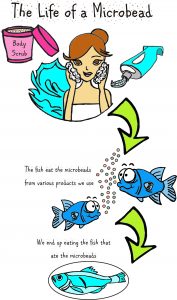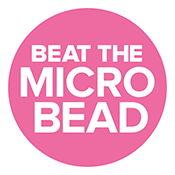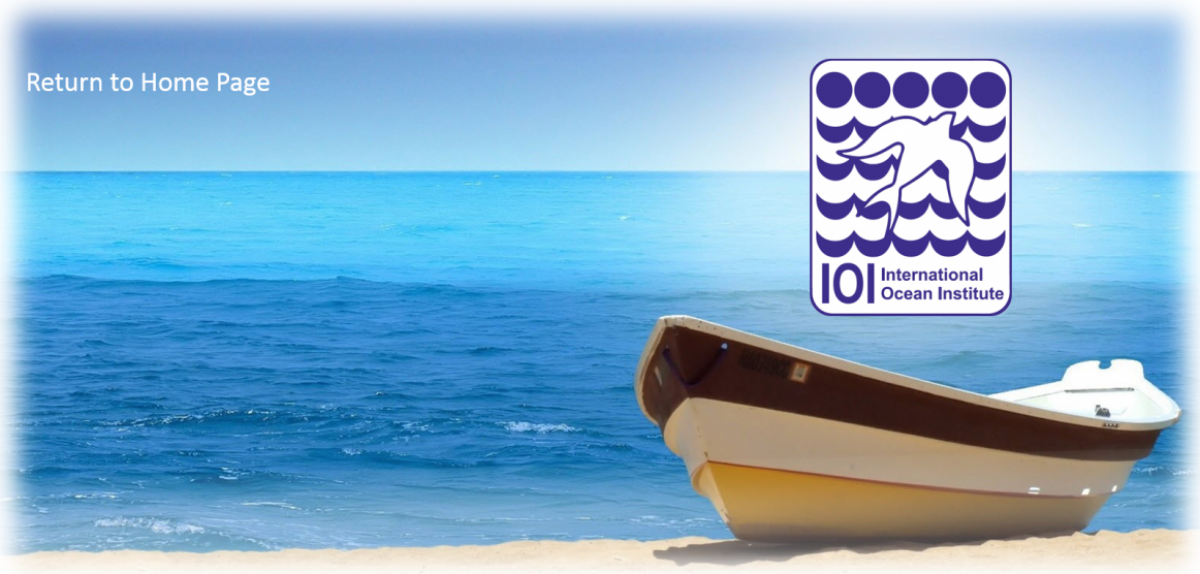 Tiny particles of plastic have been added to possibly thousands of personal care products sold around the world. These microbeads, hardly visible to the naked eye, flow straight from the bathroom drain into the sewer system. Wastewater treatment plants are not designed to filter out microbeads and that is the main reason why, ultimately, they contribute to the Plastic Soup swirling around the world’s oceans. Sea creatures absorb or eat microbeads. These microbeads are passed along the marine food chain. Since humans are ultimately at the top of this food chain, it is likely that we are also absorbing microbeads from the food we eat. Microbeads are not biodegradable and once they enter the marine environment, they are impossible to remove.
Tiny particles of plastic have been added to possibly thousands of personal care products sold around the world. These microbeads, hardly visible to the naked eye, flow straight from the bathroom drain into the sewer system. Wastewater treatment plants are not designed to filter out microbeads and that is the main reason why, ultimately, they contribute to the Plastic Soup swirling around the world’s oceans. Sea creatures absorb or eat microbeads. These microbeads are passed along the marine food chain. Since humans are ultimately at the top of this food chain, it is likely that we are also absorbing microbeads from the food we eat. Microbeads are not biodegradable and once they enter the marine environment, they are impossible to remove.
Positive action on behalf of manufacturers has meant that more and more of these microbeads are being removed from personal care prod ucts and replaced by naturally biodegradable alternatives. The International Ocean Institute – Southern Africa is committed to creating awareness around this issue and working towards a ban of microbeads in personal care products in South Africa.
ucts and replaced by naturally biodegradable alternatives. The International Ocean Institute – Southern Africa is committed to creating awareness around this issue and working towards a ban of microbeads in personal care products in South Africa.
Support a Ban on Microbeads in South Africa by signing the petition here.
Continue reading “IOI-SA becomes a Beat the Microbead Partner”
